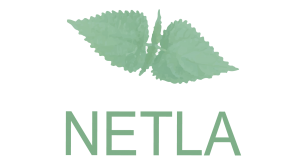Democratic leadership in preschools
DOI:
https://doi.org/10.24270/netla.2023.8Keywords:
democracy, preschool, holarchy, hierarchy, social justiceAbstract
Democratic leadership can be described as a holarchy, as opposed to a hierarchy, that encourages cooperation and honors democratic values that can lead to social justice. Where democratic leadership is practiced, there is both formal and informal power, participation in decisions is more general, and the development of schoolwork is in the hands of teams rather than leaders.Democratic preschool work is based on equality, diversity, shared responsibility, solidarity, and acceptance of different points of view. Educators, parents, and children who take part in democratic preschool activities characterized by participation, activity, and joint decision-making, and where mutual respect prevails, learn such things. Educators, parents, and children who get to know preschool activities based on hierarchy, rules, controlled organization, and limited participation learn differently.
The purpose of this article is to shed light on democratic leadership in preschools and what motivates and hinders preschool leaders and educators from practicing democratic leadership. Democratic leadership motivates educators to be active participants in schoolwork and society. It involves the commitment of educators, parents, and children to shared values of democracy and social justice. One aspect of democratic leadership in schools is to engage people in discussions about ethical issues to deepen their knowledge. Such discussion puts democracy in multiple perspectives.
What is primarily believed to motivate democratic leadership is the willingness of leaders to relinquish power and status. Leaders need to be able to show independence in thinking and opinion, and give constructive criticism. Furthermore, they need to have knowledge of democratic processes and practices, and the ability to train and guide others in such matters. Efforts should be made to bring issues to a conclusion through objective debate instead of by using force.
Democratic leadership can face obstacles and is often difficult to maintain. The school structure, culture, and history can be hierarchical, as can laws, regulations, curricula, and assessment. Furthermore, it is considered more difficult to establish democratic leadership where social inequality prevails and there is a tradition of silencing marginalized groups. The people within the school, including: educators, parents, and children, may resist changes towards democratic leadership. Leaders do not see a benefit to them in distributing authority or responsibility, and may feel their role is threatened. Democratic leadership is complex, and research shows that educators or parents are often unwilling to commit to democratic practices. Democratic practices can also be time-consuming and require active participation that people are not ready for. The opposition can therefore often lie in the person’s interest in maintaining hierarchy and the traditional role structure, and the person’s belief in it and the advantages of hierarchy.
Two questions were raised to guide the research: (1) What are the ideas of eight kindergarten principals towards applying democratic and participatory leadership? (2) What motivates and what hinders? Semi-open individual interviews were conducted with eight ECE managers in Iceland. Two researchers shared the interviews and conducted four interviews each. The interviews were recorded, transcribed, and used for further analysis. Data analysis was based on thematic analysis and from the concepts of holarchy and hierarchy. The researchers reviewed the data together with the aim of increasing the credibility of the study. Six themes were identified in the data: 1) the ECE managers’ ideas about democratic and participatory leadership, 2) the decentralization of co-managers, 3) the teams that had been formed in the ECE to distribute leadership and responsibility, as well as about the learning community, 4) democratic decisions, plans and evaluations, 5) the influence that democratic leadership has on the children’s learning in the ECE and their participation in the work, and 6) motivations and obstacles in establishing and maintaining democratic leadership in the ECE.
The findings show that the leaders felt it was important to practice democratic and participatory leadership in the preschools. This was viewed as a good way to cooperate with fellow educators, and the work became more enjoyable. One’s own ingratitude, lack of agency, lack of interest, and responsibility were mentioned as the main obstacles in practicing democratic leadership and distributing power and tasks. Democratic leadership is not limited to those in formal management positions, but initiative can come from anyone who responds and adds to the work on their own initiative. In this article, a study of democratic leadership has been discussed with the aim of shedding light on what motivates and hinders preschool directors from using it. In general, the interviewees believed that they use democratic leadership and emphasize democratic preschool activities with the participation of educators, parents, and children. The results relate to participation and social justice in ECE and the importance of doing better when it comes to marginalized groups such as children.
